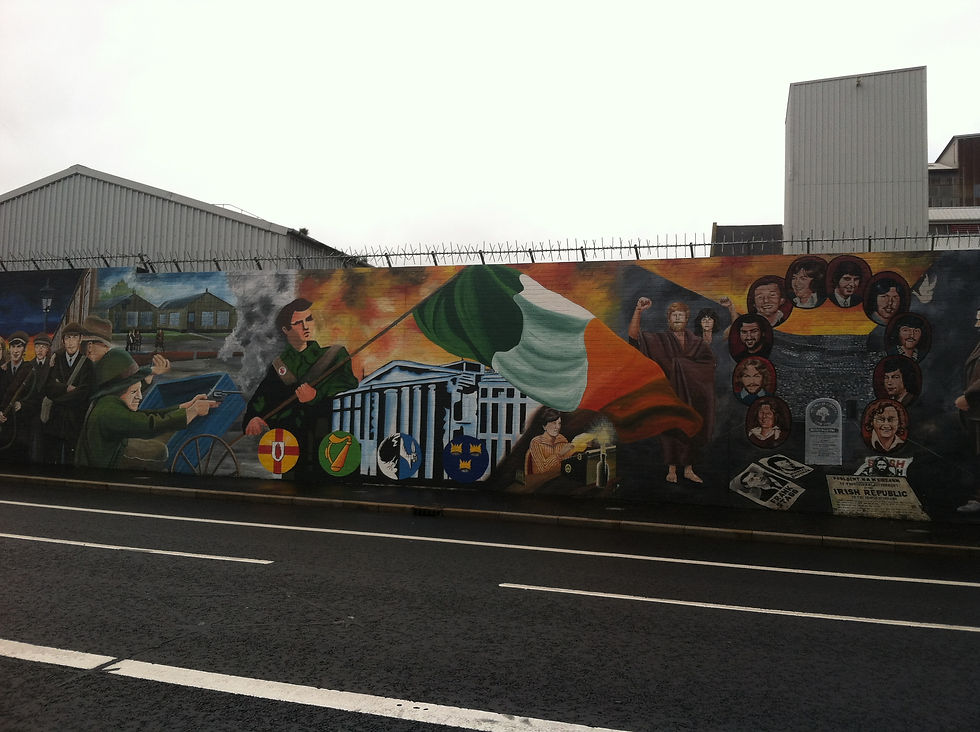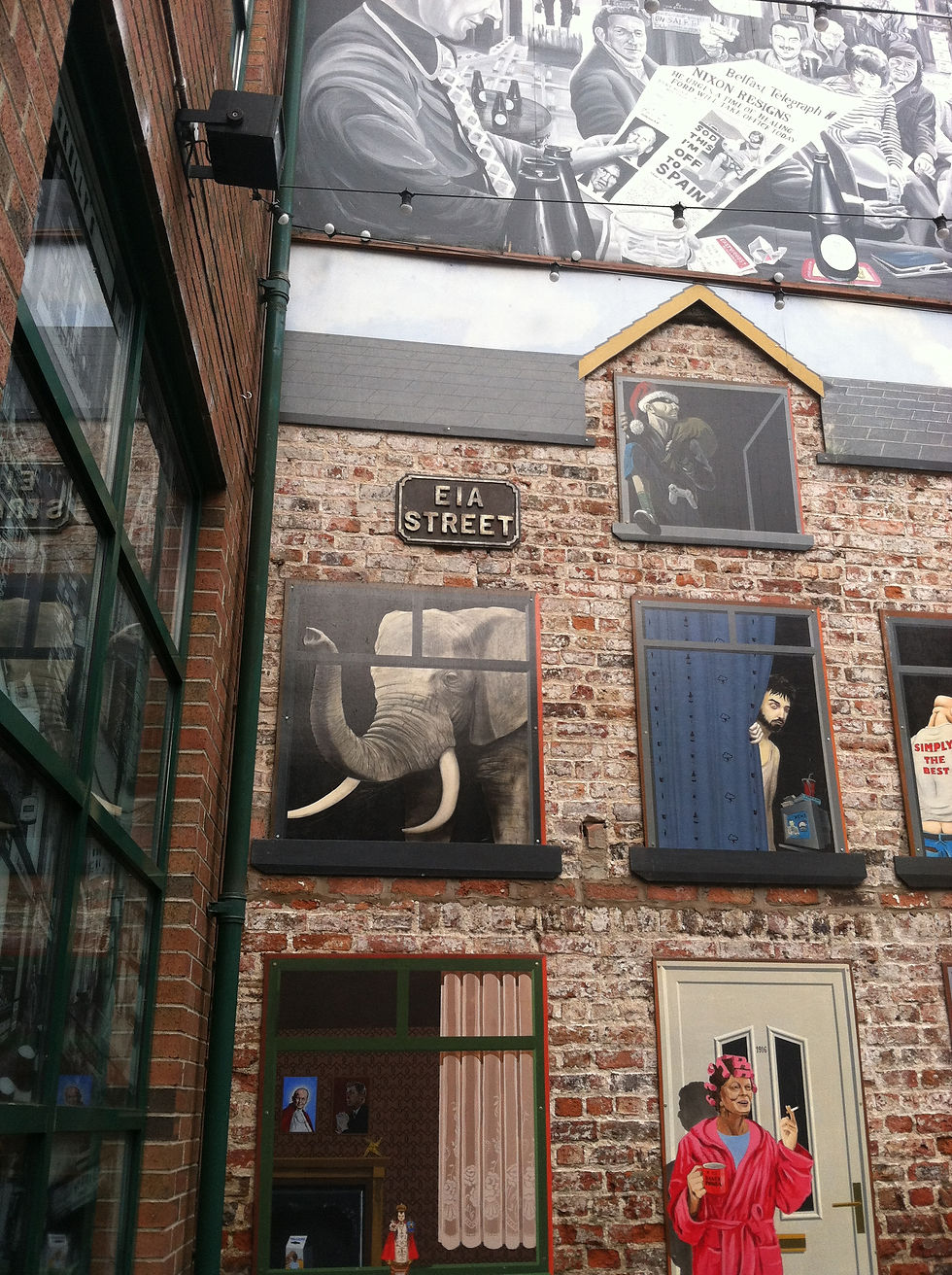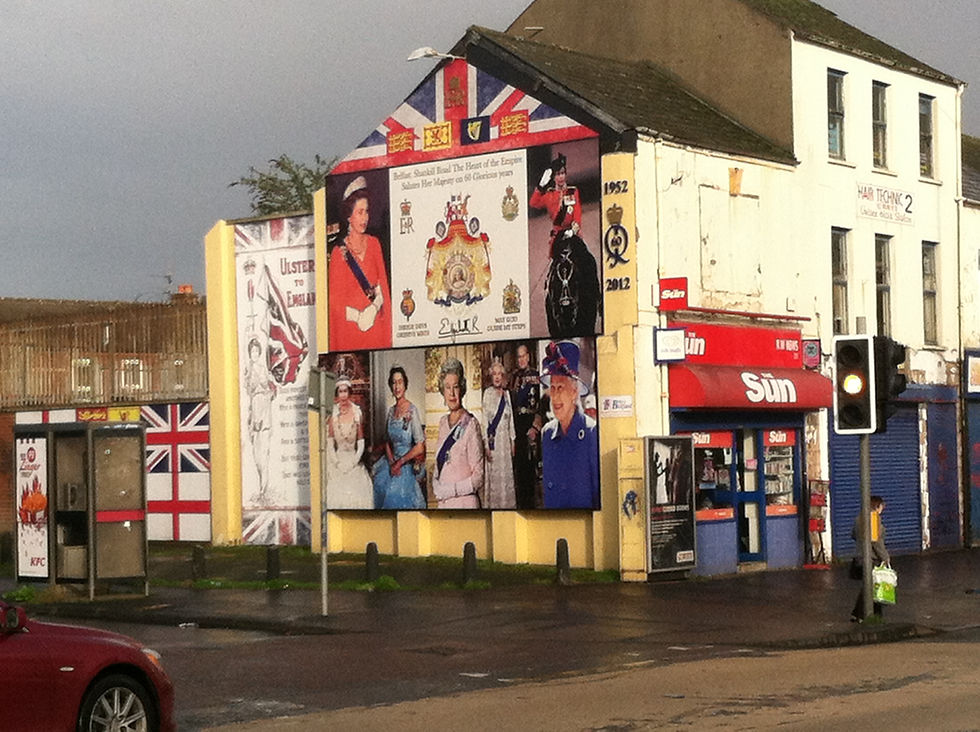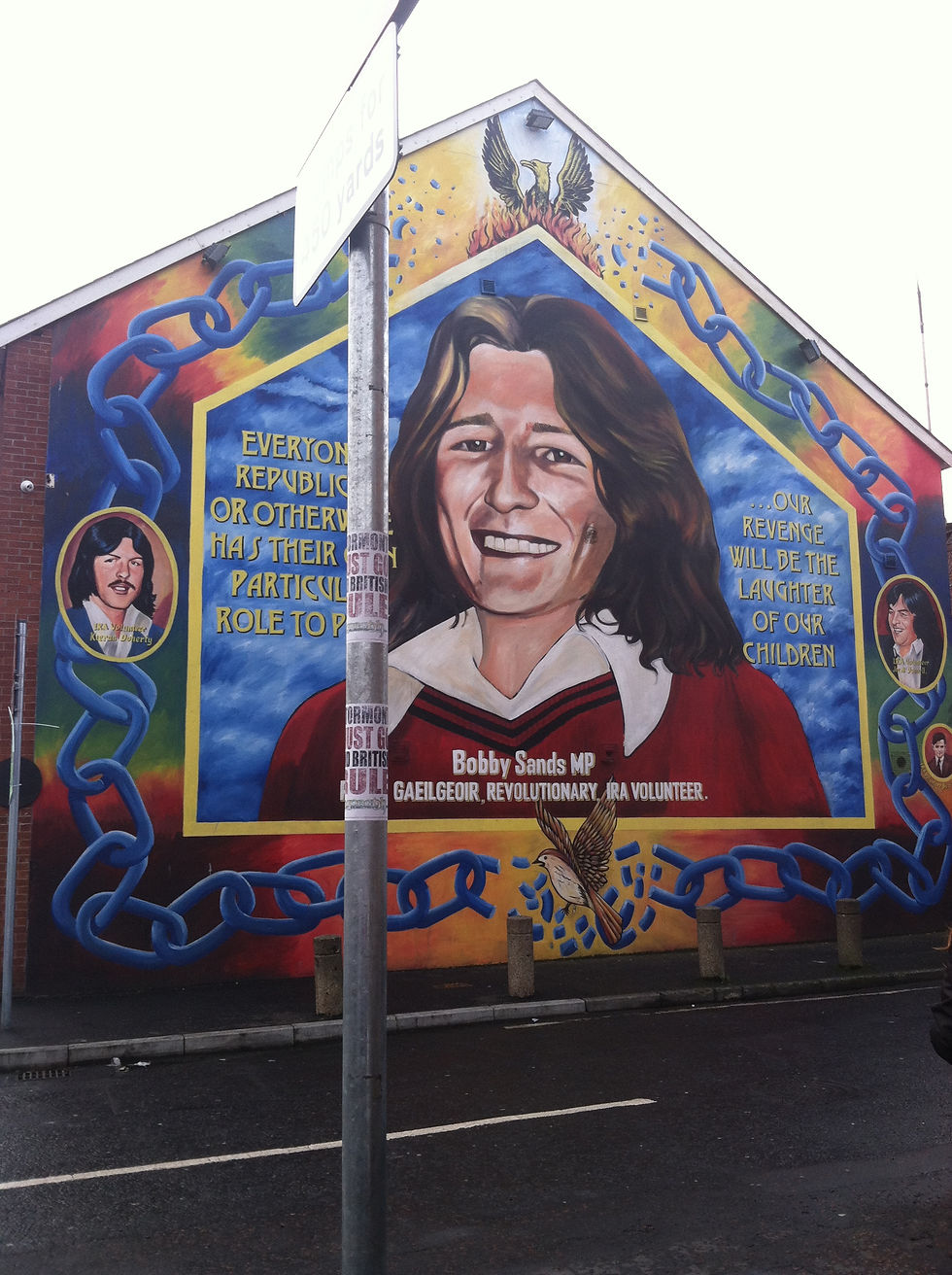The Purpose of Suffering
- elhorning19
- Mar 6, 2017
- 5 min read
"Ireland. It's like a child. It's only concerned with the past and the present. The future has ceased to exist for it." (MacLaverty, 118).

Mural in Belfast, taken by me
Imagine waking up to the shouts and screams of your family as a bomb goes off next to your home. For me, this terrifying situation is quite difficult to imagine, but it was the sad reality for our tour guide in Belfast, named Paul. When Paul was four years old, his parents came barging into his room to move to safety as a bomb exploded nearby, shattering the windows and shaking the walls of his childhood home in Belfast. Paul said that he remembers the fear in his parents' eyes, being carried from the room-unharmed- into safety elsewhere, and the sounds and shattering of glass. This fear and unease is hard for me to imagine, and it pains me to reflect upon the fact that many people experience this fear on a daily basis in Ireland during the Troubles, especially in Belfast. And these acts of violence continued to occur as Paul grew up.
When he was about six years old going to the movies with his parents, Paul had to walk down the main street in Belfast. Perched on the tops of buildings were soldiers with huge guns, and one soldier trained his gun on young Paul for the entirety of his walk down the street. The military presence in Belfast was visible to young kids and adults alike, and as a result, they had to adjust to regular searches, interrogations, and sometimes violence. As the IRA members began to target British military officers, many hotels, theaters, and restaurants were bombed during Paul's childhood and early adult life. The Troubles affected everyone and every business in this town, and I felt a little uneasy walking through the streets of Belfast that had such a history of violence and political unrest. This is the Ireland that I could not imagine or comprehend fully until I visited Belfast myself. The history and events that took place in the books I have read came to life for me when I visited this historic city and tried to put myself in the shoes of the Irish people that suffered so much in the 60s and 70s.

Mural in Belfast: Paul pointed out the elephant painting and told us that religion is usually the "elephant in the room" in conversations between individuals
In preparation for our Belfast trip, I read the book Cal, by Bernard MacLaverty. Cal, a young Catholic man that lives with his father in a Protestant town, struggles to make sense of the suffering that he and his fellow Irishmen experience on a daily basis. When traveling to and from town, people get searched at various security checkpoints. Catholics are "hunted" by Protestants and vice versa. People are murdered, bombed, or burnt out of their homes in an effort to make political statements. Cal and his father are burnt out of their house by a Protestant group, and forced to flee because of the danger, and this was not an unusual occurrence. But why? What is the point of this tension, and what will the violence achieve or prove in the end? This is a question that went through the mind of the main character Cal, but our tour guide Paul also wrestled with this question, and I don't think there is an easy answer to it.

Mural in the Protestant section of Belfast, proclaiming fierce loyalty to Queen Elizabeth
Cal does not agree with the violence that both sides (IRA and Loyalists) are dishing out, and he feels that fighting for Ireland's independence and freedom from English presence is an old fight. Cal no longer believes in Ireland as a country, and as a result, he claims that the suffering of the people is completely pointless. He realizes that "people were dying every day, men and women were being crippled and turned into vegetables in the name of Ireland. An Ireland which never was and never would be" (83). Cal has lost faith in the people of Ireland and the political leaders as well because he does not believe that it is possible to resolve a conflict with such a long history.

Bobby Sands mural in Belfast: He was an IRA member that fought for the united Ireland that Cal could not imagine
When I went to Belfast, I gained a deeper understanding of the historical context and was able to appreciate Cal's reflections better. I can understand that Cal just wanted to be free to do what he wanted to do without being questioned about his motives because he was Catholic. He wanted to be safe in his own home without having to worry about the Protestants carrying through with their threats. But he cannot imagine such a life. Because of his reality and the history of British rule and division in his community, Cal gives up hope on the whole country. He claims that the united Ireland that everyone dreams of never existed in the past and never will exist in the future. Reading this novel and visiting Belfast prompted me to reflect upon the following question:
What does it feel like to lose hope in your own country?
With the results of our presidential election in the, the hateful, violent racism, and countless other environmental, cultural, and political issues in America, I can draw upon my experiences to begin to imagine how Cal must have felt when he began question his homeland. In America, people discriminate based on race, color and gender, while religion creates division in Ireland. During our stay in Belfast, I learned so much more about the troubles that I could have never fully realized by reading a book. While I cannot answer the questions that Cal poses in the novel, visiting this city really helped me grasp the complexity and heartbreaking reality of the Troubles. I began to place myself in Cal's shoes and tried to imagine what it would be like to walk to school every day and pass a soldier with his gun trained on me. I started to wonder what it would be like to be searched by the police multiple times a day as I go to or from work, school, the grocery store, and the church. I walked the streets that were bombed and passed by memorials of Protestants and Catholics that lost their lives standing up for what they believed in. I felt the tensions between the neighborhoods and constantly felt like I was being watched.
The difference between my experience and Cal's is that I knew that I would walk out of Belfast at the end of the weekend safely but for Cal, this was never a guarantee.




















Comments